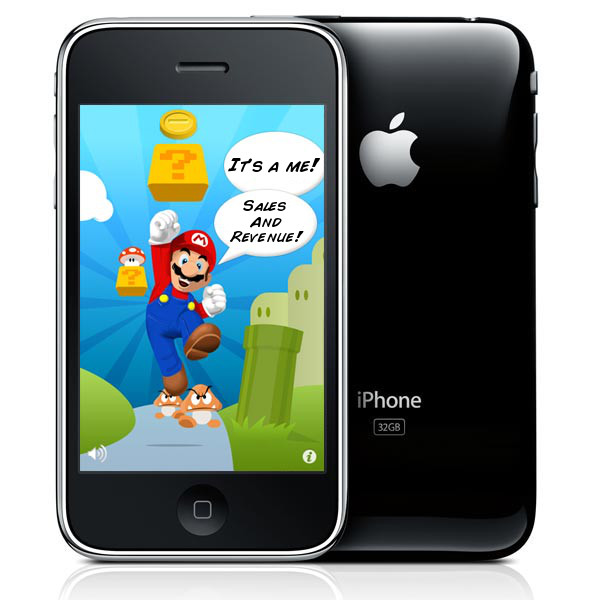GR Showdown pits the Game Revolution staff against each other in a passionate debate on a particular hot-button gaming topic. Our self-imposed rules? There is no middle ground—all must take a side. All debates will have an equal number of representative on both sides: either 1-on-1 or 2-on-2 . And all our arguments must be made in 350 words or fewer; 500 or fewer, if it's 1-on-1. Which side are YOU on?
Since this is a special 1 vs 1 vs 1, each of us will have 350 words to dish out our response.

Anthony Severino – YES:
Nearly all of the top ten best-selling video games of all time are published by Nintendo. Nintendo makes the greatest and most recognizable games and franchises in existence, period. The problem Nintendo has doesn’t lie in the software they create—it’s the hardware that struggles. Sure, the 3DS is on the rise, and both the DS and Wii last generation were massive success stories. But you can’t say the same for the Wii U, nor could you for the GameCube. And software’s reach only extends as far as the platform it’s designed for.
An easy way for Nintendo to forget about their hardware woes would be to publish Nintendo software on other hardware in addition to its own. Now, I’m not saying Nintendo needs to write off the hardware business completely—I love my Wii U and 3DS—and I’m not suggesting they release software for their main competitors, Sony and Microsoft. But I do think it would beneficial for Nintendo if they created some software for mobile, be it for iOS or Android.
Mobile games sell well and generate revenue thanks to strength in numbers. Mobile has the install base. We all have phones. Many of us have tablets now. The average mobile user plays games, even if they don't consider themselves gamers—you know, the casuals. The same people that made the Wii mainstream success, and the same people that made Mario a pop culture icon for nearly three decades.
The recognition of Mario, Zelda, and a few other key Nintendo properties, combined with the tremendous reach, low cost, and ease of access mobile provides, would give Nintendo a supplemental revenue stream that could give their hardware business the breathing room it needs to catch its wind and get back in the race. Sony did it recently. Now it’s Nintendo’s turn.

 Nick Tan – NO: Those who attack Nintendo like to strike at its weakpoint, the Wii U, but the company's dominance in both hardware and software sales on the 3DS makes the company more than profitable. If the Wii U is struggling, it behooves Nintendo to fix the console rather than attempting to grab more sales by releasing their titles on other platforms as compensation. Doing so would, in fact, pretty much admit that Nintendo is struggling when it really isn't.
Nick Tan – NO: Those who attack Nintendo like to strike at its weakpoint, the Wii U, but the company's dominance in both hardware and software sales on the 3DS makes the company more than profitable. If the Wii U is struggling, it behooves Nintendo to fix the console rather than attempting to grab more sales by releasing their titles on other platforms as compensation. Doing so would, in fact, pretty much admit that Nintendo is struggling when it really isn't.
Besides, Nintendo is all about brand loyalty. Once you make their games available, even their classic titles, to the mobile platform, people would get the perception that Nintendo games aren't necessarily associated with Nintendo platforms. And they'll begin to ask, "Well, why not the Xbox or the PlayStation? I mean, it will make Nintendo money, so why not?!"
Nintendo banks on the fact that the only way to purchase a Nintendo title is by purchasing the proprietary hardware first. This is perhaps selfish, but they've essentially followed this course throughout its history (and they've seen what happens when other platforms like the Philips CD-i get a hold of Mario and Zelda…), and Nintendo has survived the longest of the current three competitors in the console market because of its insularity.
Now, this doesn't mean that Nintendo wouldn't get a serious amount of revenue from releasing their titles on iOS and Android, as there are plenty of consumers who would love a nostalgic title on their mobile platforms at a low cost. But, as much as I usually don't like the slippery slope argument, this is one instance where the fear can be substantiated.
First, it starts out with Super Mario Bros. and maybe Super Mario World. Nintendo's stockholders soon realize that everyone wants a piece of Nintendo on the mobile handheld. So seeing incredible short-term profits, Nintendo releases more and more of its catalog on iOS and Android. This cycle then self-perpetuates itself and can't be stopped, because the call of capitalism encourages it. Then before you know it, the brand spreads itself too thin.
So then when retro Nintendo titles release on on future Nintendo platforms, why even bother when they're already available on mobile? For a short-term gain, they would lose out on their long-term sustainability. I believe that cost is too great.







